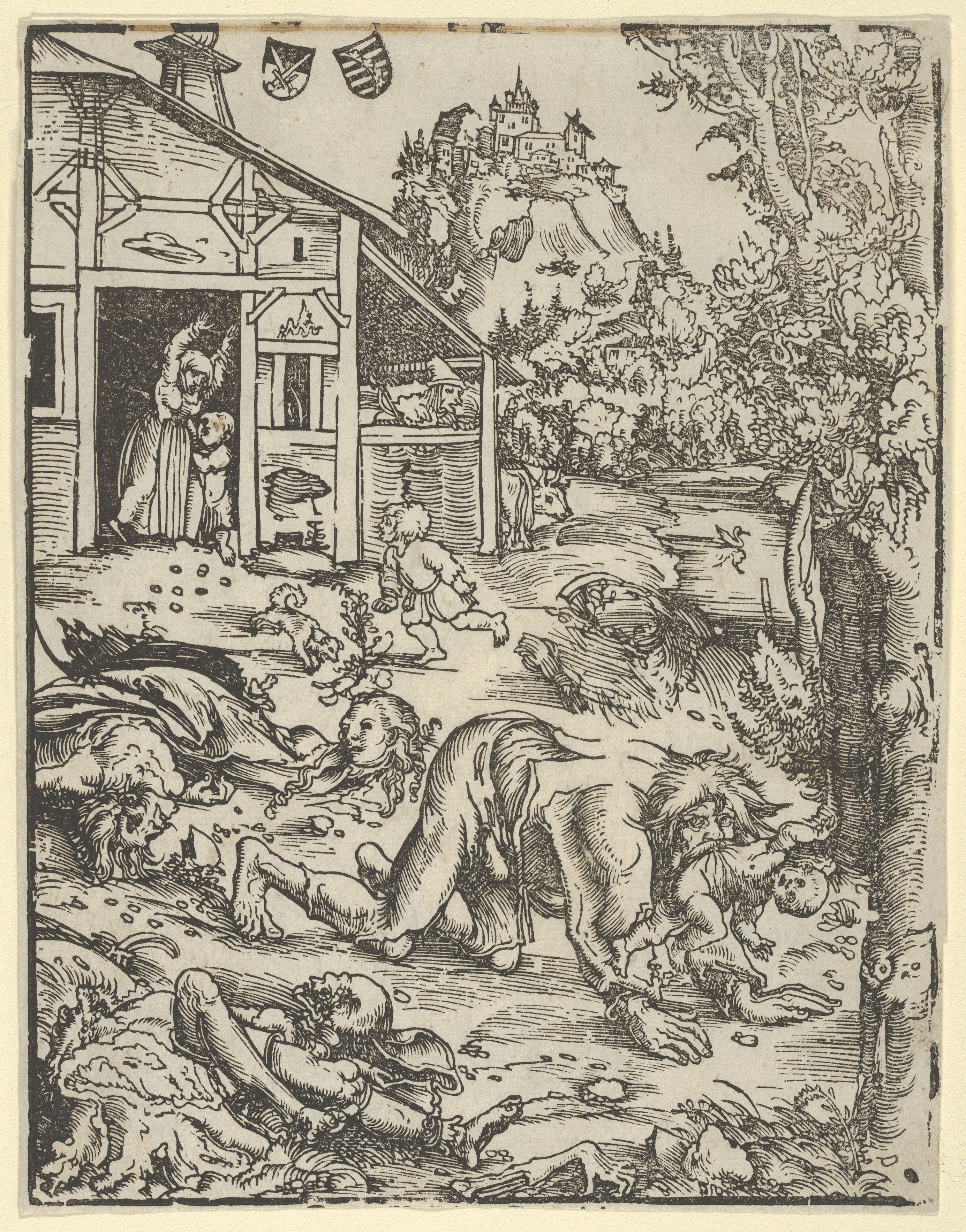Beerwolf on:
[Wikipedia]
[Google]
[Amazon]
 A ''Beerwolf'' (''Bärwolf'', ''Werwolf'') is a German folk-tale monster commonly known as a
A ''Beerwolf'' (''Bärwolf'', ''Werwolf'') is a German folk-tale monster commonly known as a
 A ''Beerwolf'' (''Bärwolf'', ''Werwolf'') is a German folk-tale monster commonly known as a
A ''Beerwolf'' (''Bärwolf'', ''Werwolf'') is a German folk-tale monster commonly known as a werewolf
In folklore, a werewolf (), or occasionally lycanthrope (; ; uk, Вовкулака, Vovkulaka), is an individual that can shapeshift into a wolf (or, especially in modern film, a therianthropic hybrid wolf-like creature), either purposely ...
.
In a debate arranged by Philip of Hesse
Philip I, Landgrave of Hesse (13 November 1504 – 31 March 1567), nicknamed (in English: "the Magnanimous"), was a German nobleman and champion of the Protestant Reformation, notable for being one of the most important of the early Protesta ...
and the Elector of Saxony in 1539, when it appeared the Holy Roman Emperor Charles V Charles V may refer to:
* Charles V, Holy Roman Emperor (1500–1558)
* Charles V of Naples (1661–1700), better known as Charles II of Spain
* Charles V of France (1338–1380), called the Wise
* Charles V, Duke of Lorraine (1643–1690)
* Infa ...
was readying to attack the Lutherans
Lutheranism is one of the largest branches of Protestantism, identifying primarily with the theology of Martin Luther, the 16th-century German monk and reformer whose efforts to reform the theology and practice of the Catholic Church launched ...
, Martin Luther
Martin Luther (; ; 10 November 1483 – 18 February 1546) was a German priest, theologian, author, hymnwriter, and professor, and Augustinian friar. He is the seminal figure of the Protestant Reformation and the namesake of Lutherani ...
introduced the concept of ''Beerwolf'' to describe the Pope
The pope ( la, papa, from el, πάππας, translit=pappas, 'father'), also known as supreme pontiff ( or ), Roman pontiff () or sovereign pontiff, is the bishop of Rome (or historically the patriarch of Rome), head of the worldwide Cathol ...
and the Emperor. In the context of resistance theory, the ''Beerwolf'', "in contrast to a mere tyrant, not only broke the law, but overturned the entire moral order upon which it is based. All the subjects of such a ruler ... had the right to resist and even to kill him and all his supporters". The point was that Luther thought the Emperor and the Pope were just such apocalyptic tyrants, and that the present situation justified all efforts to resist them.
The significance of the term lies in the fact that, for most of his life, Luther held that no subject could actively resist his secular ruler, an issue of obvious significance in a time when many rulers in the German lands and their respective subjects held competing religious beliefs. The concept of ''Beerwolf'' marked Luther's final, and most extreme, position on resistance theory, as it relied on natural law
Natural law ( la, ius naturale, ''lex naturalis'') is a system of law based on a close observation of human nature, and based on values intrinsic to human nature that can be deduced and applied independently of positive law (the express enacte ...
(specifically, in a similar manner to what would later be called Hobbes
Thomas Hobbes ( ; 5/15 April 1588 – 4/14 December 1679) was an English philosopher, considered to be one of the founders of modern political philosophy. Hobbes is best known for his 1651 book ''Leviathan'', in which he expounds an influe ...
' right to self-preservation) instead of earlier and more limited rights to resistance that Luther had accepted as flowing from German constitutional law.
The 1550 '' Magdeburg Confession'' included a ''Beerwolf'' clause that had to be fulfilled before an evil ruler could be resisted by the lesser magistrate
The doctrine of the lesser magistrate is a concept in Protestant thought. A lesser magistrate is a ruler such as a prince who is under a greater ruler such as an emperor. The doctrine of the lesser magistrate is a legal system explaining the exact ...
s.Whitford, David, ''Tyranny and Resistance: The Magdeburg Confession and the Lutheran Tradition'', 2001, 144 pages
The concept of just rebellion that the term ''Beerwolf'' introduced was subsequently developed by fellow Protestants who faced a similar situation in France, the Huguenot Monarchomachs
The Monarchomachs (french: Monarchomaques) were originally Early Modern France, French Huguenot political theory, theorists who opposed monarchism, monarchy at the end of the 16th century, known in particular for having theoretically justified tyra ...
.
See also
*Right of rebellion
In political philosophy, the right of revolution (or right of rebellion) is the right or duty of a people to "alter or abolish" a government that acts against their common interests or threatens the safety of the people without cause. Stated throu ...
References
Martin Luther Concepts in political philosophy German legendary creatures Werewolves {{Lutheran-stub